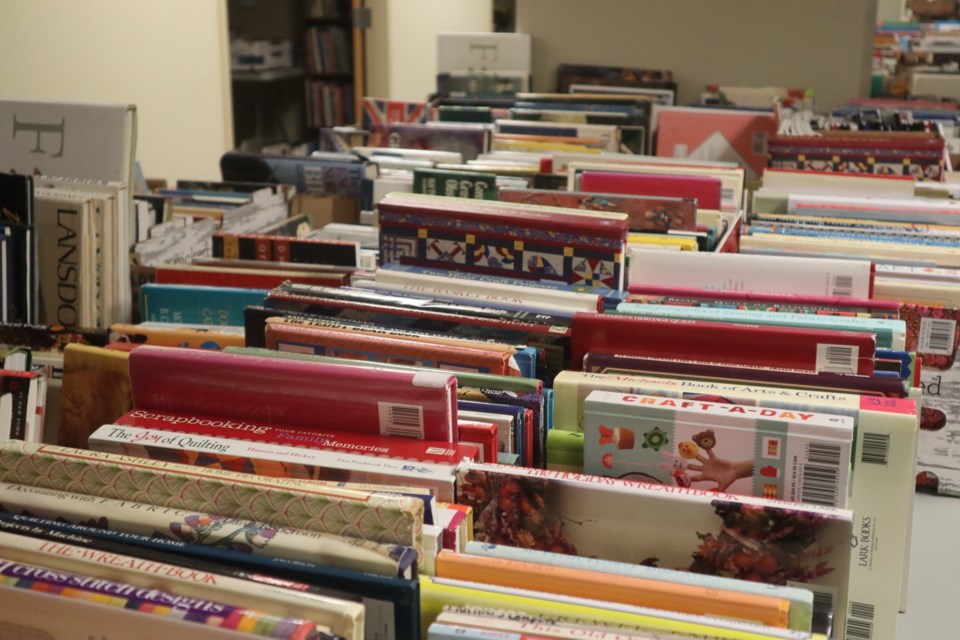This article originally appeared on The Trillium, a Village Media website devoted exclusively to covering provincial politics at Queen’s Park.
Librarians are done keeping quiet.
Speaking to the Standing Committee on Finance and Economic Affairs for pre-budget consultations in Hamilton this week, stakeholders across Ontario called for a digital public library — envisioned as a provincewide online resource for job training, language upskilling, tutoring and homework help, and health information.
To make it a reality, librarians asked for $15 million in the upcoming Tory budget, expected to be released before the end of March. They made a similar request last year.
They pointed to Alberta and Saskatchewan as examples of well-integrated systems. Both provinces allow people with a library card from any local branch to check out materials across the province.
Michelle Arbuckle, executive director of the Ontario Library Association, focused on the high demand for services libraries provide.
"My own public library provides access to LinkedIn learning, curriculum-based resources, language learning, children’s materials in multiple languages, as well as high-quality online research databases," she said in her deputation on Tuesday.
These programs cost the Burlington Public Library $96,000 a year, CEO Lita Barrie said — a pittance on the provincial scale, but too much for many small and rural libraries, she said.
"Right now, here in Ontario, people don't have access to the same information simply based on where they live," Arbuckle said.
A provincewide approach would save money compared to the current branch-by-branch model, she said.
Librarians also asked for more base funding from the province, noting that the last increase was more than 25 years ago — and that libraries are increasingly dealing with social issues like homelessness and mental health.
"We're a $35-million organization. We're getting $949,000 from the province. That's the same as we got back in the '90s," Hamilton Public Library CEO Paul Takala said.
He added that "the last couple of years have been much more challenging in terms of the number of people that libraries are serving all across the province that are facing multiple struggles."
A funding increase could also help with cybersecurity, said Dina Stevens, executive director of the Federation of Ontario Public Libraries, noting the recent attacks on the Toronto and London systems.
The technology to defend against increasingly sophisticated cyberattacks is "hugely expensive" and library systems are "very vulnerable," she said.
The librarians' other ask was for $2 million for First Nations libraries. Just 39 of 133 First Nations have public libraries, Barrie said.
"Public libraries are destinations for these communities — sometimes the last gathering place where their languages, stories, culture and artifacts are stored," Arbuckle said.
Municipal funding available to other libraries is often nonexistent for First Nations, and one-time grants aren't enough, she said.
"Librarians running these institutions have to make choices between the books and resources they provide or their salary, and their salary is often far below a living wage," Arbuckle said.
PC MPP Andrew Dowie, who spent 12 years on the Essex County Library Board, asked Barrie if physical libraries may end up "shrinking or evolving" as digital resources become more important.
"More is more," Barrie said. More people are checking out online resources, but there's an "equal" increase in foot traffic, she said. For example, this week, she said her library launched a STEM-based learning space where kids can access robotics.
Libraries also "provide a huge respite for loneliness," Barrie said, pointing to the many seniors who visit the Burlington library every day.
"And what they are seeking most is people," she said. "They might just be reading the newspaper, but they are thrilled to be able to see kids running. And the same with some of our marginally housed folks, as well — just to have access to that normalcy, of what community truly means, in a time where our society is very imperfect, I think is just something that I feel so privileged to be able to witness working in a public library."
